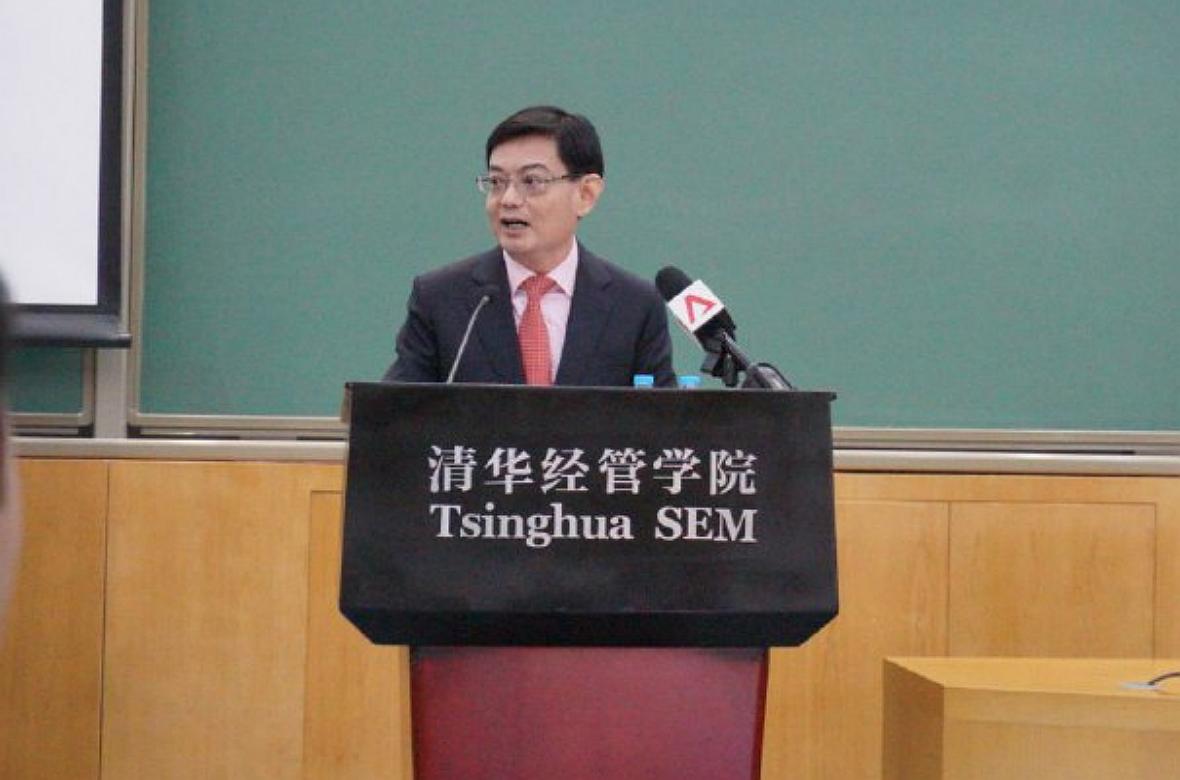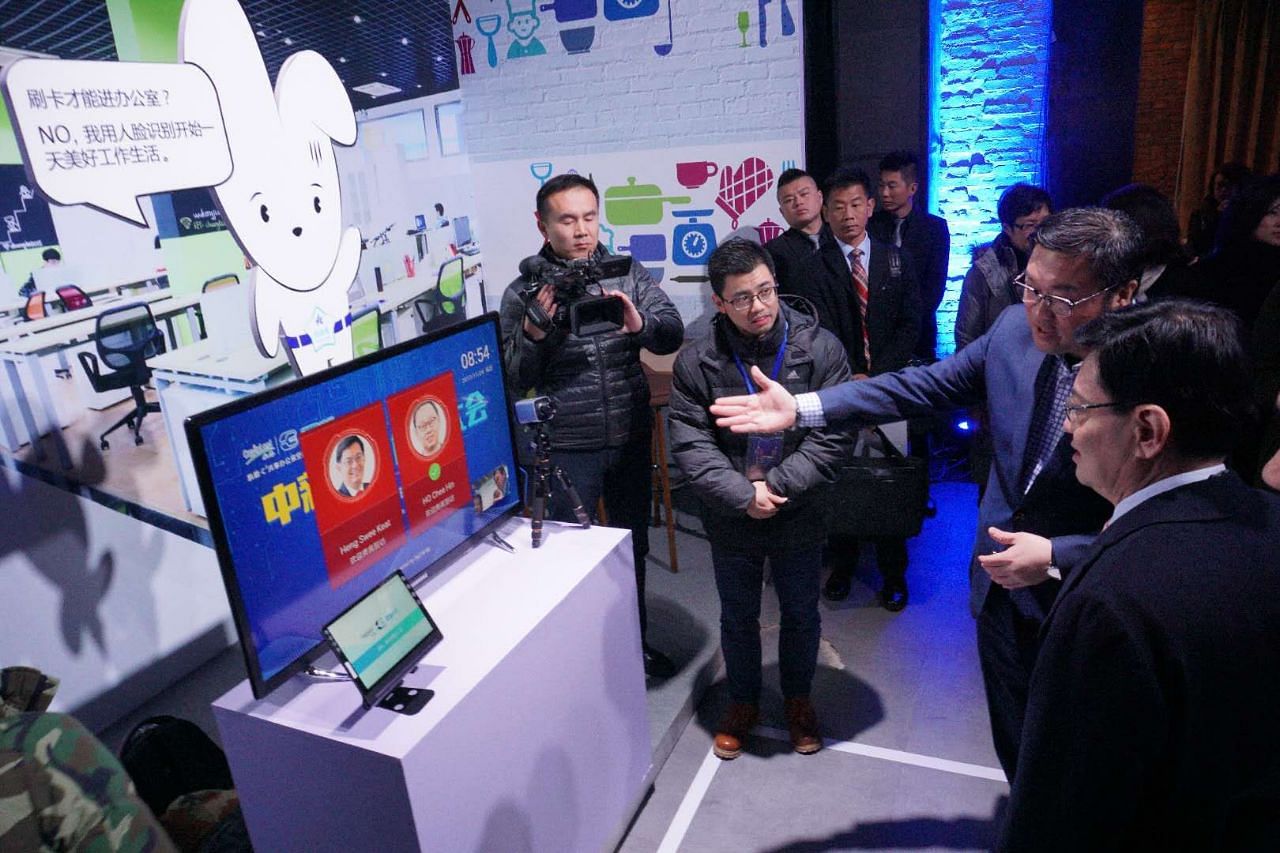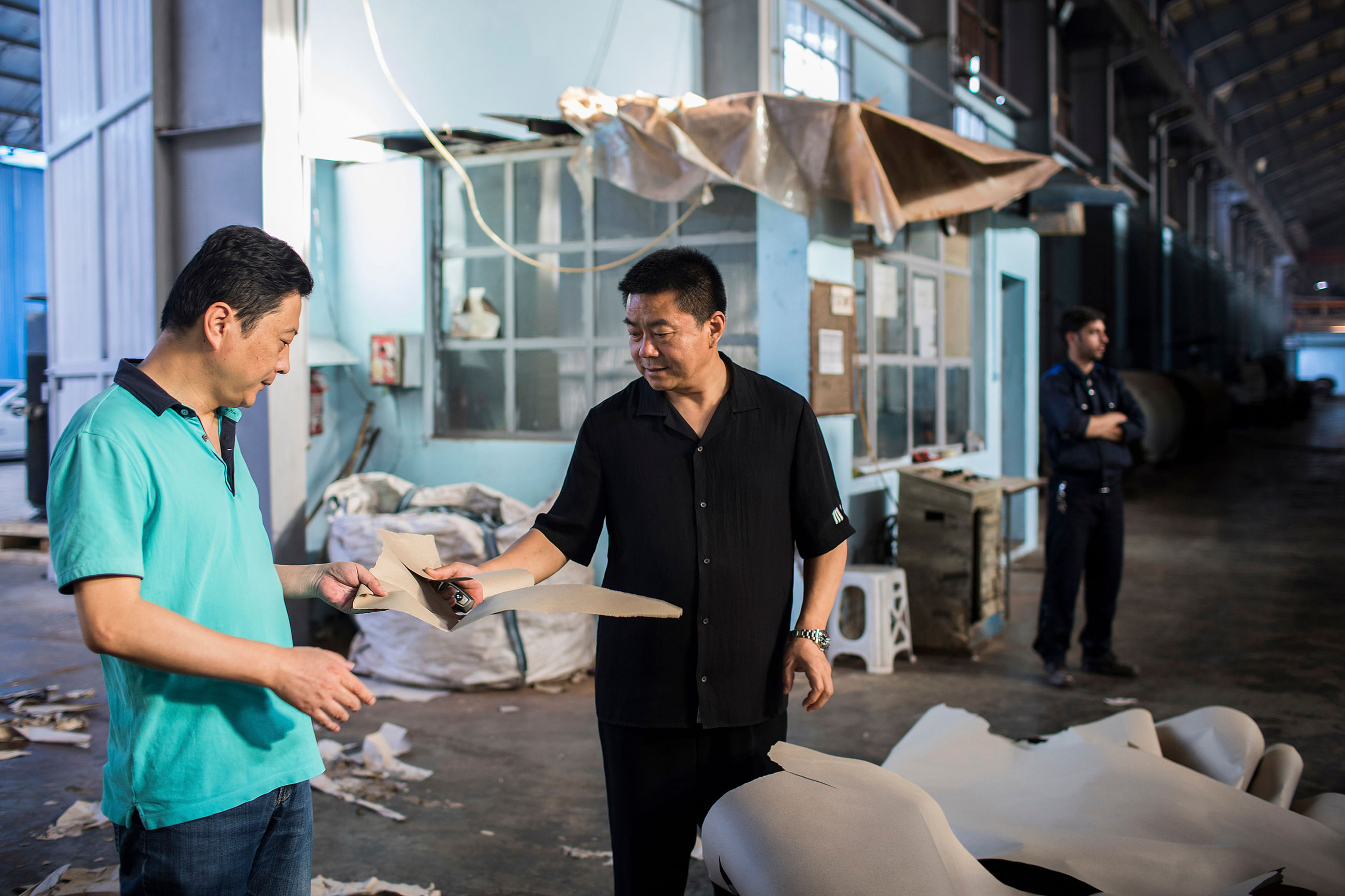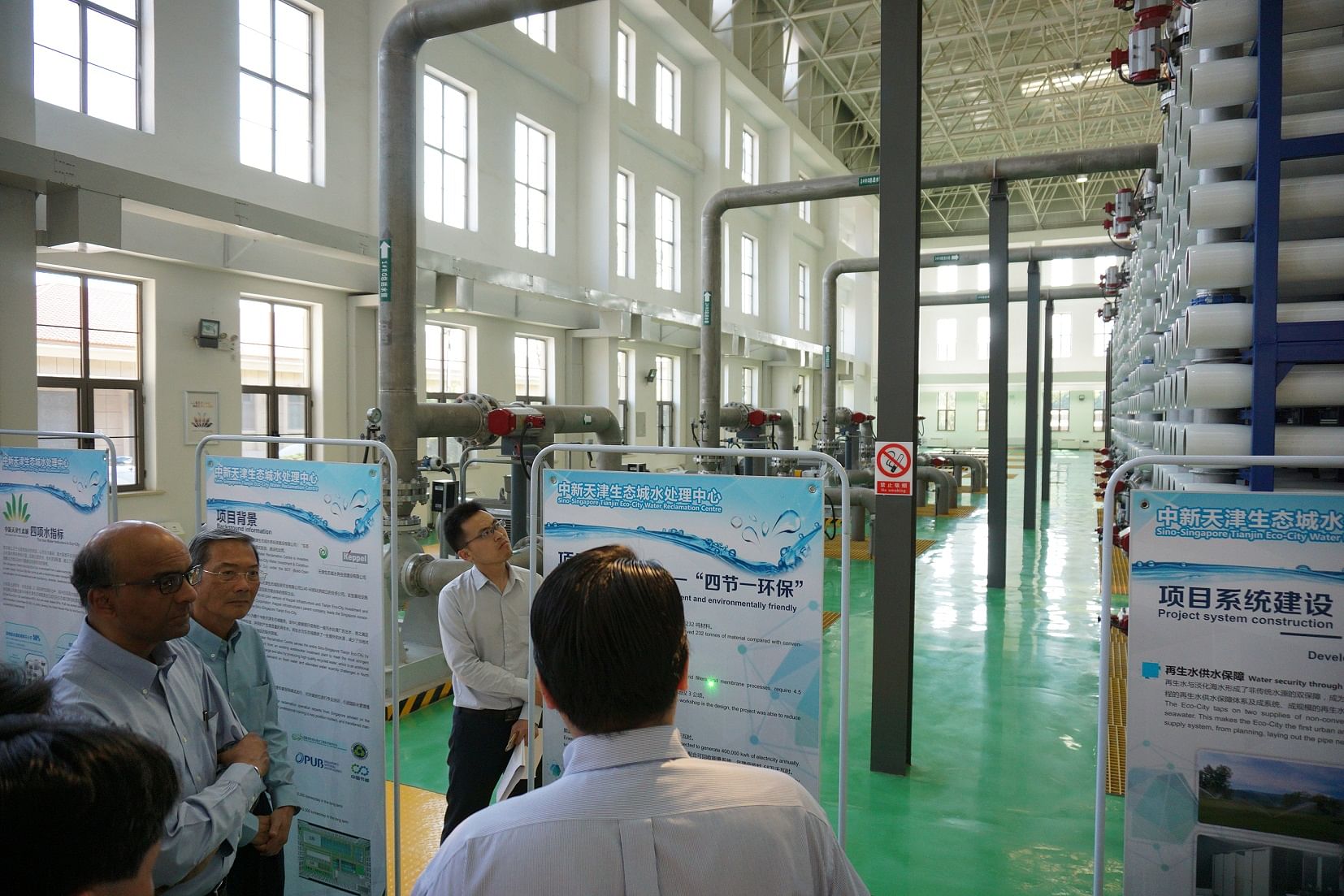Heng Swee Keat's speech at Tsinghua University: 5 ways to take China-Singapore partnership forward
Sign up now: Get insights on Asia's fast-moving developments

Finance Minister Heng Swee Keat giving a speech at Tsinghua University on Saturday (Nov 25).
ST PHOTO: LIM YAN LIANG
BEIJING - Finance Minister Heng Swee Keat, who is on a visit to China this week, delivered a speech at the Tsinghua University School of Economics and Management on Saturday (Nov 25).
Titled 'Singapore-China Relationship: Enduring Ties, New Partnerships for a Better Future', his speech touched on the re-emergence and rise of China as an economic powerhouse, Singapore-China friendship, global challenges and opportunities faced by the two countries, as well as areas of cooperation and partnerships.
Here are five areas of potential cooperation between Singapore and China outlined by Mr Heng:
1. Trade
Maintaining an open, multilateral trading system that promotes free flow of goods and services across borders give countries greater scope to make trade-offs between different sectors, and reach "win-win" deals, said Mr Heng.
He pointed out that global trade remains a powerful enabler of growth for many countries, including major economies.
While some countries respond to globalisation by adopting protectionism or a bilateral approach to trade matters, Mr Heng said Chinese President Xi Jinping believes that "pursuing protectionism is like locking oneself in a dark room. While wind and rain may be kept outside, that dark room will also block light and air. There is no winner in a trade war", citing an analogy Mr Xi made at the World Economic Forum in Davos.
"This is a stark contrast to how some countries have now chosen to turn inwards, and how the Qing dynasty had rejected foreign trade in 1793," noted Mr Heng.

He also pointed out that major trading countries have reaffirmed that they still support the multilateral trading system. The remaining 11 members of the TPP6 have agreed to move ahead on the TPP. Earlier this month at the Asean Summit, Asean and Hong Kong signed two free trade and investment agreements.
As the Asean Chair in 2018, Singapore is committed to working towards the conclusion of the Regional Comprehensive Economic Partnership (RCEP), added Mr Heng.
2. Innovation

As innovation drives long-term growth, and no single country has all the expertise needed under its roof, there is a need for a network of partnerships and cross-fertilisation of ideas, said Mr Heng.
Singapore and China have been partnering each other in areas that are relevant to both countries, including national science programmes and university collaborations, that focus on issues like obesity, environmental sustainability and smart city technologies.
One example is the NUS-Tsinghua Centre for Extreme Search (NExT), which researches large-scale live social media analysis, and has produced useful findings and startups.
Singapore companies are actively engaging the Chinese market to testbed new ideas and build experience with large-scale projects. Mr Heng highlighted as an example the newly launched Global Innovation Alliance (Beijing) that aims to strengthen partnerships between entrepreneurs and investors in Singapore and China.
"These alliances link up vibrant innovation centres around the world, for entrepreneurs, innovators and investors to learn from and cooperate with one another. Singapore hopes to launch more of such alliances in China and other parts of the world," he said.
The year 2018 is designated as the Asean-China Year of Innovation. As Asean Chair, Singapore hopes to encourage cooperation in new technologies, digitalisation and creative solutions, so that our people can gain skills and thrive in this world of disruptive technologies.
3. Financial cooperation

This is important in channelling capital for businesses to partner one another to seize new opportunities, commercialise innovations, and venture out to third countries, said Mr Heng.
Singapore has been an early supporter of the Belt and Road Initiative, China's way to actively connect with its neighbours and economic partners, strengthen cooperation, and reap mutual benefits.
With a strong financial hub and professional services base, Singapore will support the ventures along the Belt and Road, said Mr Heng.
Deeper financial cooperation will benefit Singapore companies investing in Central and Western China, and jointly in third countries, especially in the immediate Southeast Asia region, he added.
To harness more private capital to support regional infrastructural financing needs, the Monetary Authority of Singapore is working with commercial banks and multilateral organisations to develop infrastructure financing as an investible asset class. This will complement Singapore's efforts to enhance infrastructural development and connectivity in the region.
4. People-to-people exchanges

Frequent people-to-people exchanges help to keep bilateral ties strong and resilient, said Mr Heng.
There are cross-cultural learning and exchanges between schools, universities, and research institutes, including Singapore's collaborations with Tsinghua University.
The China Cultural Centre launched in Singapore by Emeritus Senior Minister Goh Chok Tong and President Xi Jinping in 2015, works actively with schools and community groups on joint programmes on Chinese arts and culture.
Prominent groups such as the Singapore Chinese Orchestra and Beijing People's Art Theatre perform regularly in both countries.
Singaporeans like Joanna Dong and Nathan Hartono have entered the finals of Sing! China to compete with and be inspired by the very best talents in China, and vice versa.
"I'm sure they have their own fan base in China now!" said Mr Heng.
5. Environmental sustainability

To truly achieve a higher quality of life, the environment where people live and work matters too, said Mr Heng.
Singapore's efforts in advancing environmental sustainability started in the 1960s with the movement to transform Singapore into a Garden City.
Making China beautiful is also at the centre stage of the Chinese policy agenda.
Citing the Tianjin Eco-city as an example, Mr Heng said the collaboration has broadened to include sustainable and innovative city-planning and urban solutions.
Singapore companies are also learning from China's experiences in renewable energy and cleantech.


